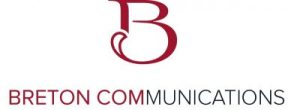By JoAnne Sommers
 What is your level of financial literacy? Perhaps not as high as it should be, judging by the results of a recent Angus Reid Public Opinion survey and financial literacy quiz of Canadian entrepreneurs.
What is your level of financial literacy? Perhaps not as high as it should be, judging by the results of a recent Angus Reid Public Opinion survey and financial literacy quiz of Canadian entrepreneurs.
The online survey of 500 small business owners across the country, conducted on behalf of Intuit Canada*, posed questions such as, “what is the role of the balance sheet?” and “how can short-term cash flow be improved?” The results indicated that the vast majority of participants face a serious financial literacy skills gap, said Jeff Cates, managing director of Intuit Canada.
“A large number of small business owners (83 per cent) scored either basic or below basic on the quiz (i.e., six correct answers or fewer out of 10),” he noted.
Intuit, a provider of financial and tax management software, suggests a likely root cause of the poor showing: while about half of the small business owners surveyed realized that they needed to spend time on financial management, only 11 per cent of them had sought professional help and resources.
“Starting a small business is one of the most empowering journeys one can take, but it’s also marked by an unrelenting series of obstacles – from understanding tax requirements to juggling inventory to managing payroll,” said Cates. “In order to succeed, small business owners must have the financial literacy skills needed to navigate these obstacles. Unfortunately, the majority do not.”
He pointed to recent Statistics Canada numbers showing that while 85 per cent of small businesses survive their first year, only 51 per cent are still alive after five years.
In addition to starting a business on a sound financial footing, Cates calls the ability to understand and manage everyday financial realities and challenges, “the key to long-term success [and] essential to reversing this trend.”
The survey results are very sobering, said Dan Kelly, president and CEO of the 109,000-member Canadian Federation of Independent Business (CFIB).
“Thousands of Canadians go into business each year, not because they are financial gurus, but because of other talents or opportunities. Many quickly learn of the massive demands on their time and attention – particularly in dealing with red tape, taxation and finance. While many entrepreneurs have terrific business instincts, they can become even more successful if they take the time to improve their financial literacy.”
Fortunately, there appears to be a willingness on the part of many entrepreneurs to do so. The Intuit study revealed that fully 88 per cent of respondents want to build their skills; another 42 per cent want to spend more time with an accountant, 24 per cent would like to attend information sessions with other small business owners, and 22 per cent want online tutorials to improve their skills.
Thanks to the efforts of government, banks, industry associations and non-profit organizations, there is a wide range of tools, resources and support designed to boost financial literacy among small business owners. Last fall, the Financial Consumer Agency of Canada, a federal government body mandated to protect and educate consumers – including small-business owners – about financial services, launched a free financial toolkit. Appropriately named “Your Financial Toolkit”, it includes videos, tools, case studies and 11 modules that can be completed in workshop settings on issues that include credit and debt management, income tax and financial planning.
Canada’s banks have experts available to work with small business clients and provide advice, either one-on-one or through business planning seminars, training opportunities, coaching podcasts, publications and seminars dealing with subjects ranging from efficient business management, business planning and funding sources to recovery of accounts receivable.
Scotiabank, for example, offers specialized programs and products that are designed to help small business owners get started on the right foot. In addition to its products and services, the site features advice-laden blogs and videos on a wide range of financial management issues. Scotiabank also offers new small-business customers its Running Start for businesses planning guide, as well as a complimentary copy of Intuit’s Easy Start accounting system.
BMO Bank of Montreal’s SmartSteps for Business is a new online tool that provides entrepreneurs with a customized plan to make their banking more efficient, while taking care of financial needs that go beyond their businesses.
And RBC Royal Bank of Canadaoffers what it calls ‘Definitive Guides’ for personal financial management for business owners. The current package includes guides on succession planning, growing and streamlining your business, as well as personal financial management.
Ultimately, it’s up to small business owners to take advantage of such services. Owners can’t be experts in everything but they can strengthen their businesses significantly by availing themselves of the skills and knowledge of those who are.
*The firms had operated for at least one year and employed up to 100 staff.







